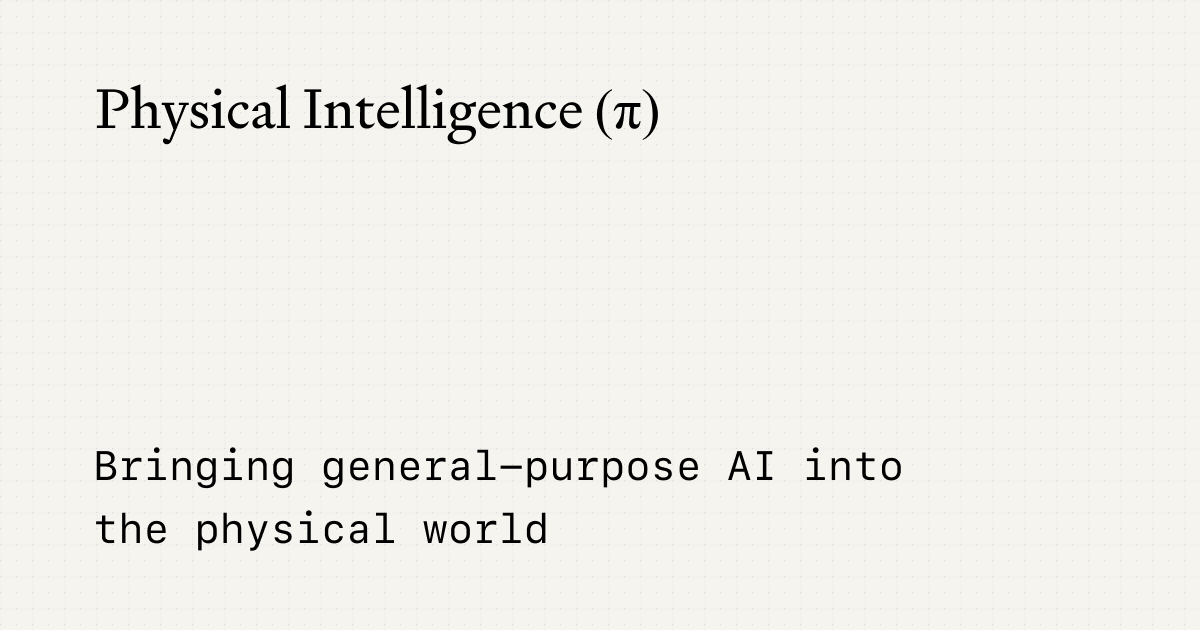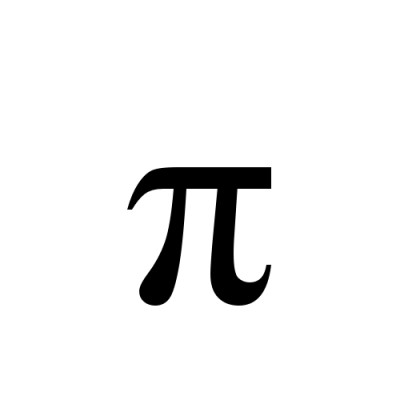
Physical Intelligence is building the future where robots seamlessly integrate with our physical world, empowered by universal AI that transcends specific tasks and environments. Our vision is to unlock a new era of robotic capability by bridging advanced artificial intelligence with physical interaction, creating autonomous systems that can understand, adapt, and respond to the complexity of real-world scenarios.
At the heart of our innovation lies the π-zero foundation model—a powerful fusion of vision, language, and action that enables robots to learn and perform tasks as varied as household chores and complex industrial functions without retraining. By developing open-ended, generalizable robot intelligence, we are reshaping the possibilities of automation and robotic application globally.
Driven by deep expertise and bold ambition, Physical Intelligence is charting a transformative path for robotics. We are passionately creating an intelligent robotic ecosystem that fundamentally redefines how machines perceive, decide, and act, ultimately delivering unprecedented value across industries and everyday life.
Our Review
We've been watching the robotics space for years, and Physical Intelligence just might be the breakthrough we've been waiting for. Founded in 2024 by some serious AI heavyweights—including Stanford's Chelsea Finn and robotics legends Sergey Levine and Karol Hausman—this isn't just another robot startup with flashy demos.
What caught our attention immediately was their $400 million funding round. When you see names like OpenAI, Jeff Bezos, and Sequoia Capital all writing checks, you know something big is brewing.
The Big Idea That Actually Makes Sense
Here's what we love about Physical Intelligence's approach: they're not building robots. They're building the brain that can control any robot. Their π-zero foundation model is designed to jump between different robotic hardware and figure out new tasks without needing to be retrained from scratch.
Think of it like this—instead of programming a robot to do one specific job really well, π-zero learns general principles about how to interact with the physical world. Tell it to "clean this unfamiliar kitchen" and it'll figure out where the dishes go, even if it's never seen that particular setup before.
Where the Magic Happens
The technical side is genuinely impressive. Their Vision-Language-Action (VLA) architecture combines visual perception with natural language understanding and physical actions in a way that feels surprisingly natural. We've seen plenty of robots that can follow pre-programmed routines, but π-zero's ability to generalize across environments is different.
What really sold us was their open approach—they're actually sharing model weights and code with the research community. That's either supreme confidence in their lead or genuine commitment to advancing the field. Probably both.
The Reality Check
We'll be honest: this is still early days, and the robotics graveyard is littered with companies that promised too much too soon. But Physical Intelligence feels different—maybe it's the caliber of their team, or the fact that they're focusing on the software foundation rather than trying to build the perfect robot hardware.
The real test will be whether π-zero can maintain its generalization abilities as it scales beyond controlled environments. But if they pull this off, we're looking at a potential iPhone moment for robotics—where suddenly, every robot becomes infinitely more capable overnight.
Feature
General-purpose AI for robots
Vision-Language-Action (VLA) technology
Foundation models controlling multiple robot types
Natural language command understanding
Open-ended generalization across different robots and environments







